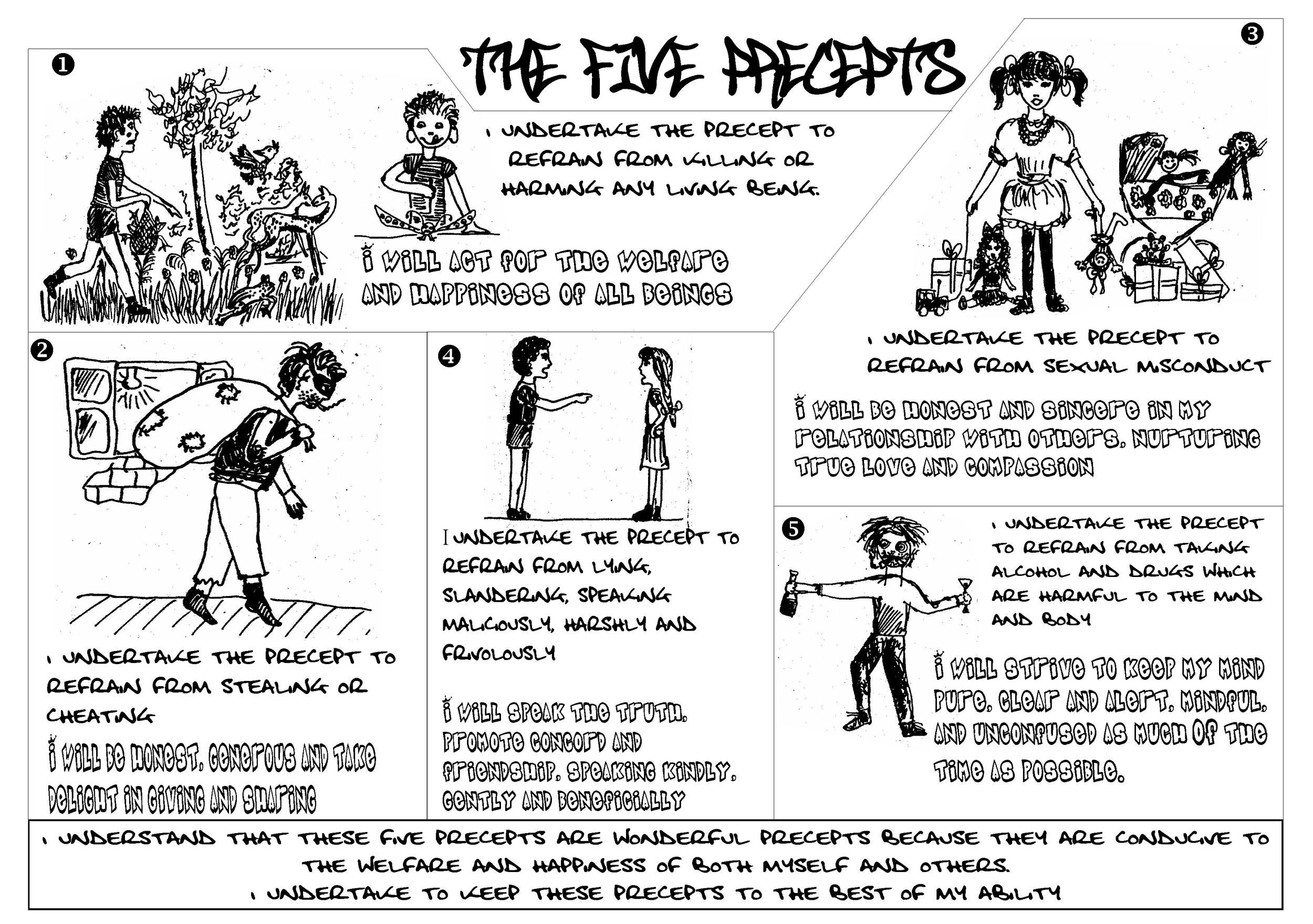Five Buddhist Precepts
They represent the basic aspect of virtue (Sīla in Pāli) or wholesome behaviour in the Buddha's teaching.
In the formal version used for Family Events they are written as
I undertake the precept to refrain from destroying living creatures
I undertake the precept to refrain from taking that which is not given
I undertake the precept to refrain from sexual misconduct
I undertake the precept to refrain from incorrect speech
I undertake the precept to refrain from intoxicating drink and drugs which lead to carelessness
Some explanations of the five precepts:
The precepts act as a common bond while we are together; they help us guide our body, speech and mind. They help us guide the way we act and provide a common standard. They also help us to develop concentration and awareness. Firstly, we have to remember the precepts, think about them. We then use them to guard ourselves against outward actions that are not helpful to co-operation and understanding.
1) not harming anything – which also means looking after one another.
2) not to steal – which also means to be honest and share things.
3) no sexual misconduct – which also means be honest in a relationship, being kind to your friends.
4) not lying – which also means speaking in a kind and receptive way.
5) no drugs or alcohol – which also means to keep your mind alert and mindful.
We also take refuge in the triple gem: the Buddha – which means to be fully awake, the Dhamma – the ultimate truth and the Sangha – a body of people that use this way of understanding the way it is.
Adapted from the 2004 Rainbows Weekend on the theme of the six senses.
The above shows a translation of some of the Sixteen Bodhisattva Precepts from the Soto Zen tradition followed by the text from the Theravada tradition, as explained on the Access to Insight website


